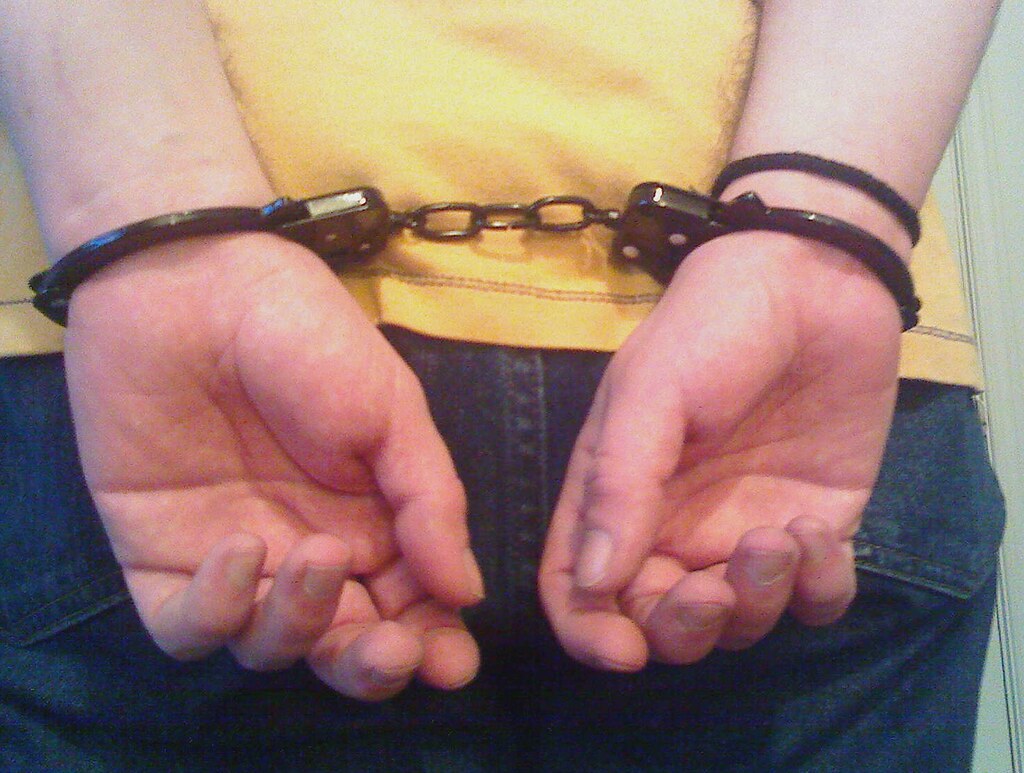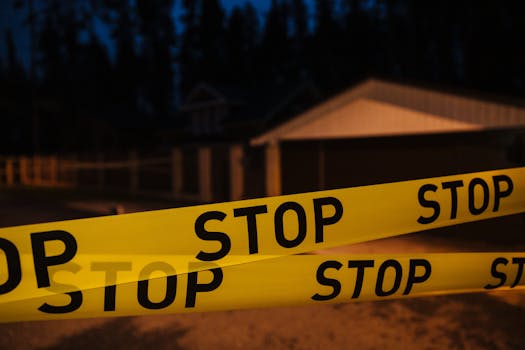Call us now:
If you were thinking about “Rushing the Field” after a big victory, think again. Protest or Celebration? – doesn’t matter.
The unintended consequence of adding to—and enhancing—crimes every year in Florida is the occasional shock that those new crimes apply to you, your family, or your friends. The anti-protest laws that were all the rage during the Black Lives Matter demonstrations and subsequent political rallies have now reached far beyond their original targets.
When Republican lawmakers in Florida passed sweeping legislation aimed at punishing protesters at Donald Trump rallies with criminal charges, they claimed the law was not meant to catch innocent celebrators like college football fans. But that is exactly what has happened. Four fans who rushed the field after the University of Florida Gators’ victory over the University of Texas at Austin now face felony charges under the newly enacted statute.

In Gainesville, two University of Florida students and two other fans rushed the field in a moment of victory celebration. What would once have been a minor trespass citation or a campus disciplinary matter has now become a felony case under § 871.05(3)(c).
For a full discussion and breakdown of the new felony trespas statute applying to sporting events and more see below.
Were the people of Florida sold a bad bill of goods with the passage of these laws? That remains to be seen, but for now the only people really affected by this increase in criminal penalties are the Gators themselves.
Maybe this can serve as a wake up call that our criminalization solution is doing more harm than good. We already have plenty of criminal laws that regulate almost every human activity in Florida. Everyone can agree that criminal laws are designed to protect society from harm. The problem begins when people aren’t making laws in good faith. If your law is designed to protect people, usually we agree its good. When your law is actually designed to score a political headline, or to control a person who isnt hurting anyone but you just don’t like, it starts to erode everyone’s trust in government and the laws we all share.

The New Law: Florida Statute § 871.05 — “Interference with a Sporting or Entertainment Event”
The charges stem from Florida Statute § 871.05, enacted through House Bill 1365 (2024) and Senate Bill 1092 (2024). The new language was added to criminalize entering or remaining in certain large event venues without authorization.
§ 871.05(3)(c), Fla. Stat. (2025):
“Any person who willfully enters or remains in a venue during a ticketed covered event wherein attendance exceeds 5,000 persons, without being authorized, licensed, or invited to enter or remain in such venue, commits a felony of the third degree.”
This new subsection elevates what was previously considered a trespass or disorderly conduct offense into a third-degree felony—punishable by up to five years in prison and a $5,000 fine under § 775.082 and § 775.083, Florida Statutes.
The law’s effect is that running onto a football field after a game—or crossing a temporary police barrier at any event with more than 5,000 attendees—can now be prosecuted with the same severity as aggravated assault, grand theft, or possession of a controlled substance.
Legislative Intent vs. Real-World Outcome
During the legislative debate, even lawmakers questioned whether the bill might sweep too broadly. According to committee hearing transcripts reported by Fresh Take Florida, Senator Joe Gruters asked:
“So, just to be crystal clear, if somebody goes onto the field, they won’t be charged with a felony?”
The bill’s sponsor, Rep. Jonathan Martin (R-Fort Myers), responded:
“That’s not the intent … they can quote me in the case law if that becomes an issue.”
Martin further explained that the law was “specifically intended to address the Secret Service efforts to keep our president safe while he’s in the State of Florida … Currently people who are trespassing at those events or locations where the president is located are only committing a misdemeanor. This keeps happening very frequently.”
Despite those assurances, the bill—HB 1365 / SB 1092—passed overwhelmingly, with only two Democratic senators voting against it.
Now, just months later, those same legislators’ words are being tested in court.

Unintended Consequences: UF Fans Face Felony Prosecution
In Gainesville, two University of Florida students and two other fans rushed the field in a moment of victory celebration. What would once have been a minor trespass citation or a campus disciplinary matter has now become a felony case under § 871.05(3)(c).
According to Fresh Take Florida and The Palm Beach Post, these fans appear to be the first people ever charged under this statute since it was enacted in 2025.
The irony is hard to miss: a law justified on the grounds of national security and anti-protest enforcement is now being applied to sports fans celebrating a win. The line between “political protest” and “public enthusiasm” has blurred entirely.
Overlap with Existing Trespass Laws
Florida already had multiple statutes governing unauthorized entry. For example:
- § 810.08, Fla. Stat. — Trespass in a Structure or Conveyance (generally a misdemeanor unless armed).
- § 810.09, Fla. Stat. — Trespass on Property Other Than a Structure or Conveyance (misdemeanor unless posted and warned).
Under these laws, entering a field or stage area without permission would have been a misdemeanor at most. The new § 871.05, however, reclassifies the same conduct as a felony whenever it occurs at a “covered event” exceeding 5,000 attendees.
That dramatic escalation in penalty reflects Florida’s broader pattern of enhancing existing crimes through politically motivated legislation—often without considering the unintended reach.
Constitutional and Legal Concerns
1. Legislative Intent and Statutory Ambiguity
When lawmakers publicly declare that a law isn’t meant to criminalize certain conduct, courts may rely on those statements to interpret ambiguous statutory language. Here, the Legislature’s record makes clear that students rushing a field were not intended targets.
Under the rule of lenity in § 775.021(1), Fla. Stat., any ambiguity in a criminal statute must be construed in favor of the accused. Defense counsel can argue that the Legislature never intended for celebratory fans to be prosecuted as felons.
2. Vagueness and Due Process
The statute criminalizes entering or remaining “without being authorized, licensed, or invited” at any covered event exceeding 5,000 people. But what exactly counts as “authorized”? If fans storm a field after the game ends, is the “venue” still restricted? Are temporary police ropes or barriers legally sufficient notice?
The Due Process Clause requires that criminal statutes give ordinary people fair notice of what conduct is prohibited. Ambiguities that allow arbitrary enforcement can render a law unconstitutionally vague under both the U.S. and Florida Constitutions.
3. First Amendment and Peaceful Conduct
The statute’s origins in “anti-protest” policy make it particularly vulnerable to First Amendment challenges. The law fails to distinguish between violent protest and peaceful assembly, or between political expression and celebratory behavior.
Courts have repeatedly held that the state may not impose disproportionately severe criminal penalties for peaceful expressive conduct. Applying § 871.05 to fans or demonstrators without any violent intent could infringe on the right to peaceable assembly guaranteed by both U.S. Const. amend. I and Art. I, § 5, Fla. Const.
4. Disproportionate Penalties
A third-degree felony carries life-altering consequences: loss of voting rights, firearm restrictions, background check barriers, and up to five years in state prison. Treating field-rushing college students the same as armed offenders or narcotics traffickers undermines the proportionality of Florida’s sentencing system.
This is not merely a question of legislative overreach—it is a cautionary example of how criminal statutes drafted for political optics can easily ensnare ordinary citizens.
Broader Context: The Rise of “Anti-Protest” Criminalization
Florida’s 2021 HB 1 (“Combating Public Disorder” Act) expanded riot-related offenses and was immediately challenged by civil rights groups for chilling lawful protest. In 2024, the Legislature doubled down with HB 1365, now codified as § 871.05, in response to both the 2024 Copa América incident at Hard Rock Stadium and ongoing political tensions surrounding national rallies.
These statutes reflect a national trend: using criminal law as a political deterrent. While framed as security measures, they often target constitutionally protected behavior.
The Gainesville prosecutions show that once a law exists, its reach rarely stops at the original justification. Now you have to trust that those in charge of administering the law will do so as we hope it was intended – but that is seldom the case. (similar to Amendment 4 being subverted by the implementation of criminal prosecutions of felons for trying to vote)
Conclusion
Florida’s new “anti-protest” felony law, § 871.05, Fla. Stat., was sold to the public as a measure to protect political figures and large events from unruly protesters. Instead, it’s being used to criminalize college football fans who ran onto the field in excitement.
This case is a powerful reminder that when laws are written broadly, they can—and will—be used broadly. The Gainesville prosecutions demonstrate the danger of legislating for political theater instead of practical justice.
For Floridians, the lesson is simple: even spontaneous, harmless celebration can now carry felony consequences. For defense lawyers, it’s a new battleground in protecting constitutional rights and fighting prosecutorial overreach.
Citations:
- Fresh Take Florida, Palm Beach Post, legislative committee transcripts (2025).
- Fla. Stat. § 871.05 (2025) – Interference with a Sporting or Entertainment Event.
- Fla. Stat. §§ 775.082, 775.083 – Felony penalties.
- Fla. Stat. §§ 810.08–.09 – Trespass offenses.
- Fla. Stat. § 775.021(1) – Rule of lenity.
- HB 1365 (2024) / SB 1092 (2024) – Enacting legislation.
Why Retaining an Attorney Matters
Criminal Defense Lawyer Matt Landsman at Landsman Law helps people accused of crimes in Gainesville, Alachua County, Bradford County, Levy County, Gilchrist County, and surrounding areas of north Florida. If you need help for yourself or a loved one, contact Criminal Defense Attorney Matt Landsman for a free consultation today. For help with any Criminal Matter from Board Certified Criminal Trial Lawyer Matt Landsman – CALL NOW
If you’re accused of any criminal matter, retaining an attorney is critical to protecting your rights. These cases will involve constitutional questions and concern allegations of misconduct or are sensitive in nature, requiring a skill, preparation and experience. For expert legal help, contact Gainesville Defense Lawyer Matt Landsman to protect your rights today.
